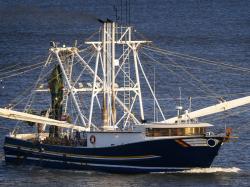NOAA Fisheries Opens Comment Period Proposed Voluntary Commerce Trusted Trader Program
February 26, 2018 | 3 min to read

NOAA Fisheries has announced the opening of a 60-day public comment period on a proposed rule to establish a voluntary Commerce Trusted Trader Program for U.S. importers –a valuable complement to the U.S. Seafood Import Monitoring Program (SIMP).
SIMP established permitting, data reporting and recordkeeping requirements for the importation of certain priority fish and fish products that have been identified as being particularly vulnerable to illegal, unreported and unregulated (IUU) fishing and/or seafood fraud. SIMP provides the federal government the information needed to prevent illegally caught and/or misrepresented seafood from entering the U.S. market.
The Commerce Trusted Trader Program is designed to maintain the effectiveness of SIMP in achieving these objectives while streamlining the reporting and recordkeeping requirements for U.S. importers who commit to establishing internal traceability and auditing measures. It is intended to reduce costs to both the government and industry, and streamline processing of import entries.
NOAA Fisheries is seeking public and seafood industry input and guidance regarding the extent to which the Commerce Trusted Trader Program as proposed is likely to achieve the objectives of preventing illegally caught and/or misrepresented seafood from entering the U.S. market; establish secure seafood supply chains; reduce costs to both the government and industry; and streamline processing of import entries.
The public will have 60 days to comment on the proposed rule. NOAA Fisheries has scheduled a number of public listening sessions. Details are posted below:
- February 28, 2018, 3:00pm Eastern, Webinar – Proposed Rule to Establish a Commerce Trusted Trader Program
You must also dial in to hear the audio: (Toll) 1-210-234-0065 / (Toll free) 1-888-946-8413 (Passcode: CTTP)
- March 12, 2018, Seafood Expo North America, Boston, Mass.
More Information
Previously, NOAA Fisheries provided a 60-day public comment period on the design of the Commerce Trusted Trader Program. These comments were reviewed in the development for the current proposed rulemaking.
Previous listening sessions
- February 15, 2018, 10:00am Eastern, Presentation (PDF)
- June 6, 2016, 2:30 PM Eastern Time: Presentation (PDF) Audio Transcript (PDF)
- May 10, 2016, 2:00 PM Eastern Time: Presentation (PDF) Audio Transcript (PDF)
- May 4, 2016, 2:00 PM Eastern Time: Presentation (PDF) Audio Transcript (PDF)
Source: NOAA Fisheries
